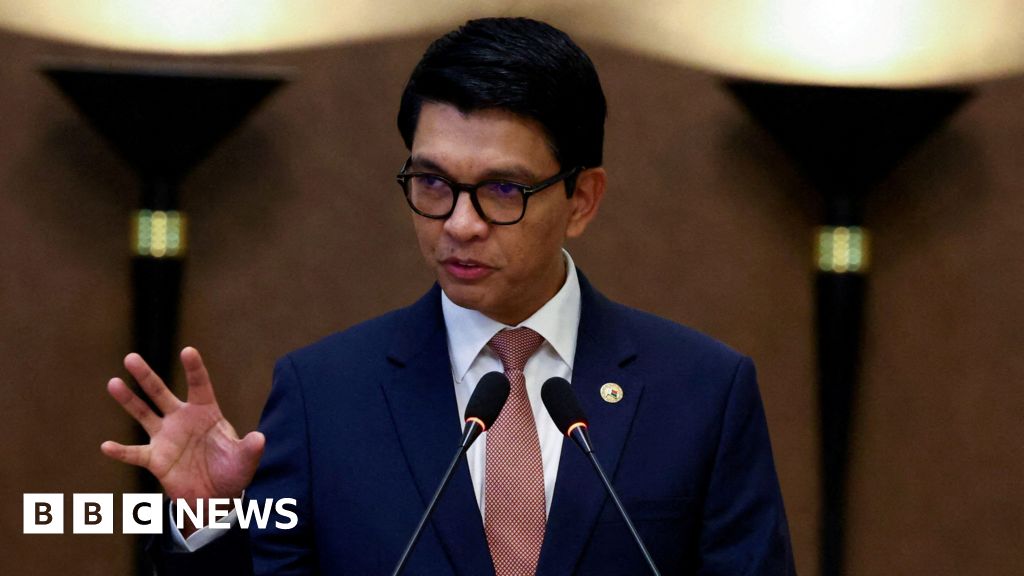- Bill adds penalties for governmental bodies that do not comply with immigration enforcement
The House Judiciary Committee voted 9-4 along party lines Monday to advance a sweeping immigration bill that would give Indiana’s governor, under the advice of the attorney general, discretion to withhold state funding from local governmental bodies that do not comply with federal immigration enforcement.
The vote on House Bill 1531 took place after several hours of testimony in which supporters and critics argue the effectiveness, cost, morality and constitutionality of the bill. It’s one of several pieces of legislation aimed at curbing immigration moving through the Indiana Statehouse this session.
“This is unprecedented to have this many anti-immigrant bills in one legislative session for Indiana. So it really is kind of a race to be the most racist. Any argument against that is just disingenuous,” said Carolina Castoreno, co-founder of the Alliance for Latino Migrant Advocacy, who testified against the bill. “The rhetoric that they are continuing to use in these rooms — the mentioning of cartels, the mentioning of Hispanic men, talking about the Spanish speaking language. They’re not talking about Ukrainian immigrants. They’re not talking about immigrants from any other part of the world, except for Latin America.”
The Indiana bills are being debated as President Donald Trump’s administration carries out widely-publicized deportations just weeks into his second term.
State Rep. J.D. Prescott, R-Union City, said the bill addresses “bad actors” who hire undocumented workers over Americans and local governmental bodies that refuse to partake in the enforcement of federal immigration law.
But opponents said HB 1531 is discriminatory and promotes racial profiling.
The bill does several things:
- It says enforcement of federal immigration laws may be carried out by federal, state or local law enforcement. These entities may not limit or restrict enforcement
- It requires a governmental body that has custody of a person subject to an immigration retainer request — an ask from a federal authority to detain someone — to give that information to a judge authorized to grant or deny bail, document the information in the person’s case file, comply with the immigration detainer request and inform the individual they are being held on an immigration detainer
- It gives immunity to a governmental body or employees for any action taken concerning an immigration detainer requests
- It permits the state attorney general to issue a cease and desist order if there’s probable case to determine a local governmental entity is not complying with an immigration detention request, to bring court action to compel compliance or prohibit a practice that violates a request, and to impose a civil penalty of $10,000 for each violation of noncompliance of an immigration detention request
- It allows the attorney general to advise the governor to withhold state funding and grants from a governmental body that does not comply with an immigration detention order. There is no limit on how much or what type of funds could be limited
- It requires a judge to report to the United State Immigration and Customs Enforcement Agency any person who is not a U.S. citizen who has been convicted of a felony or a misdemeanor
- It requires the secretary of the Indiana Family and Social Services Administration to provide, at request, information on the number of individuals who are not citizens yet receive public benefits
The bill also prohibits employers from recruiting, hiring or employing workers who are not authorized to work in the United States. If probable cause exists, it provides that the attorney general can suspend the operating license of Indiana businesses that hire undocumented people.
The House Judiciary Committee amended the bill to remove a section requiring schools to report information on undocumented students to the Department of Education — a proposal educators, students and other community members spoke out against.
Blake Lanning, assistant chief deputy attorney general, said his office worked closely with Prescott on the bill. Lanning added the bill would help strengthen existing Indiana law enforcing Indiana’s sanctuary city ban and clarifies that local law enforcement has a role in immigration enforcement.
Lanning said the attorney general’s office also has been looking into labor trafficking, which he said creates challenges for public safety, drains public resources and displaces American workers.
More:Indiana bill tracker: Bills on immigration, anti-DEI advanced last week. Here’s what else.
“We’ve been doing as much as we can with existing authority under labor trafficking laws to go after this issue of illegal aliens being employed in the state,” Lanning said. “But in many ways, Indiana law was not designed for this problem, to address this problem.”
Democrats on the panel challenged whether the bill addresses real issues. They sought clarification on whether Indiana collects data to back up claims that immigrants exacerbates challenges on public safety and overwhelm resources. Lanning said few statistics are collected on the undocumented workers in Indiana, and that’s why the bill is needed.
“From our perspective right now, because the state is not collecting data on the number of migrants coming into the state, and you know what immigration classification they fall into, we really are left relying heavily on anecdotal evidence about how this is affecting people,” Lanning said, adding estimates put the undocumented labor force at around 3%.
Bob Beatty, a councilman from Seymour, testified in favor of the bill, offering anecdotal stories about the impact of immigration on schools, traffic safety and housing in his small city. In comments targeting Latino workers and residents, he claimed immigration in its totality has created an unsustainable situation in Seymour. Beatty and Seymour resident John Stahl also said 27-year-old Seymour resident Brad Castner died as a result of a vehicle collision involving an unlicensed and undocumented driver.
Democrats and groups representing Indiana sheriff departments also expressed concerns about liability issues and the provisions of the bill they say could expose law enforcement to Fourth Amendment lawsuits for detaining people without probable case. Those are cases they are not ready to fight financially alone, said Rep. Ryan Dvorak, D-South Bend.
Currently people cannot be held for more than 48 hours. But some sheriff groups, who remain neutral on the bill, said that ICE sometimes fails to follow up on people being held on immigration detainers.
“My concern,” said Dvorak, “is still that we’re putting these local officers in potential jeopardy of Fourth Amendment litigation.”

